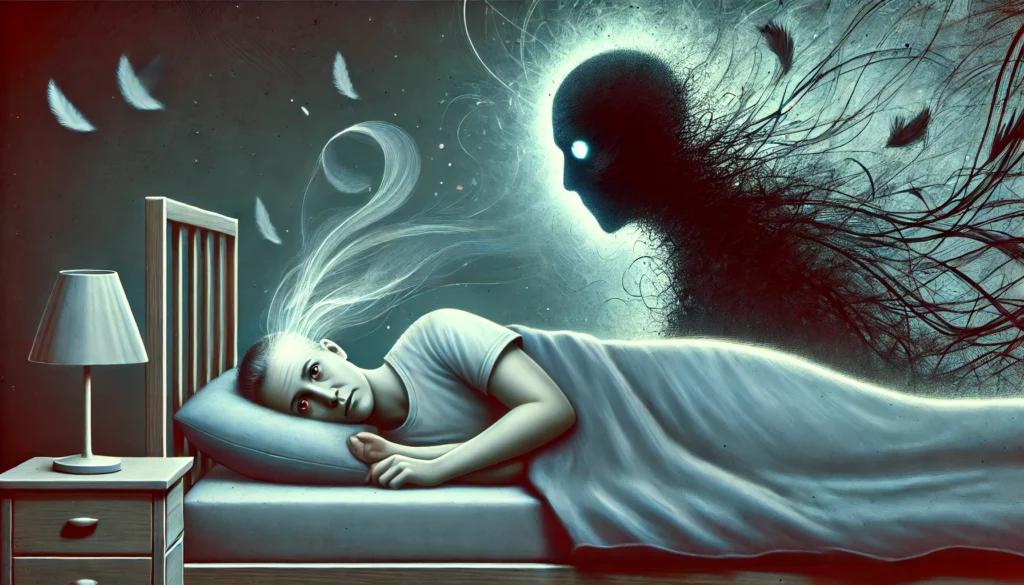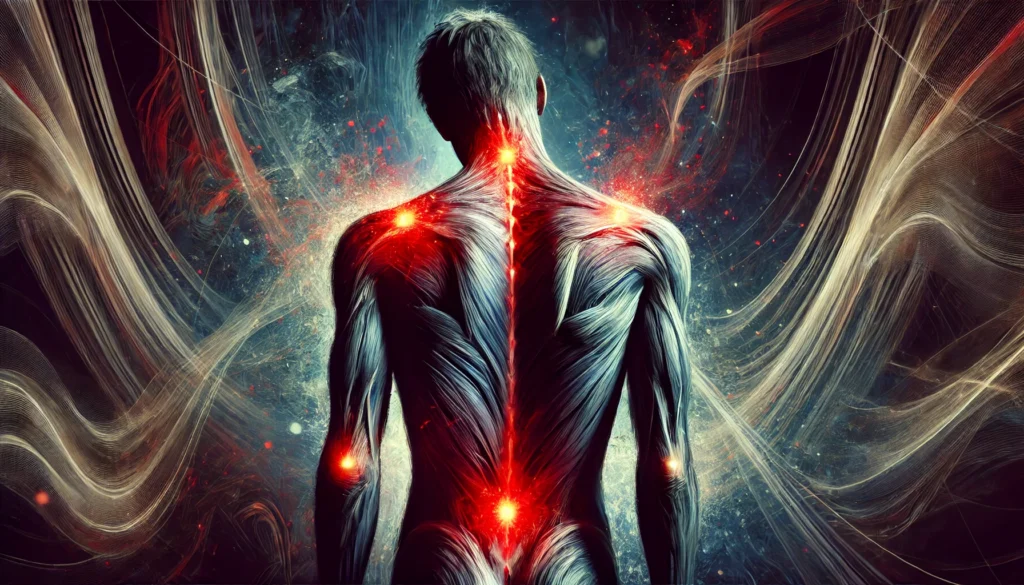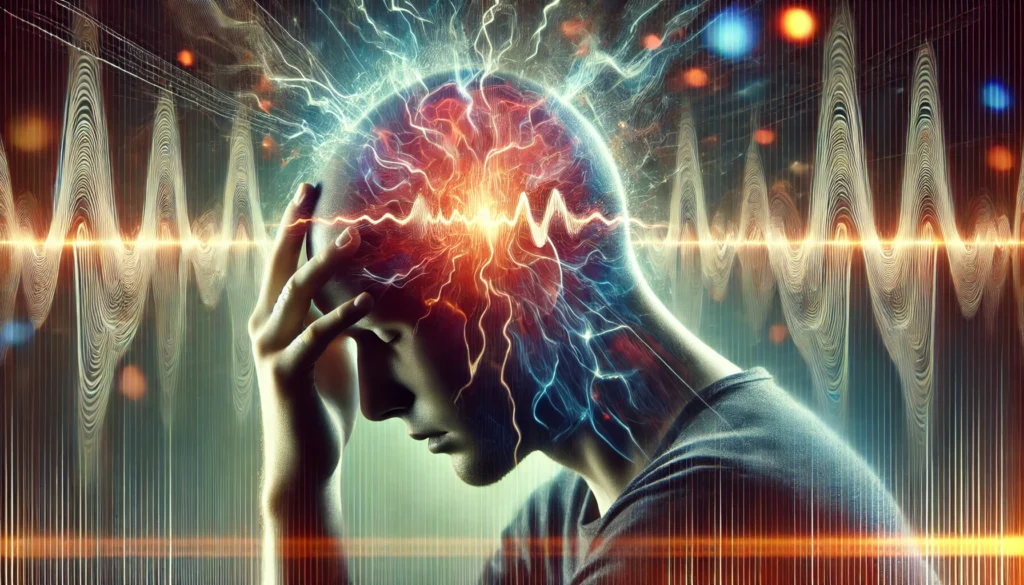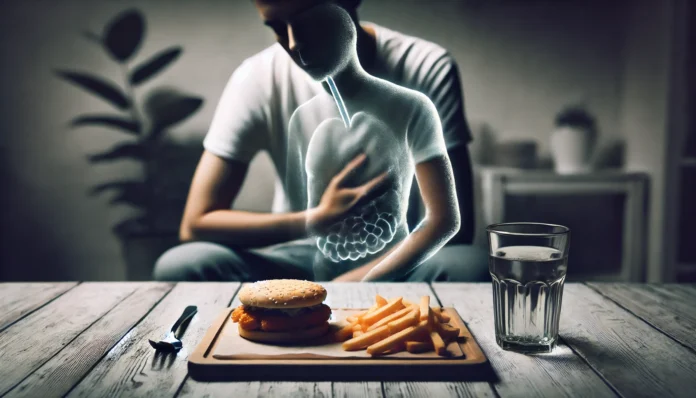Understanding the Connection Between Depression and Physical Health
Depression is often perceived as a purely mental or emotional disorder, but its impact extends far beyond mood disturbances. The physiological symptoms of depression can manifest in various ways, affecting nearly every system in the body. Individuals experiencing severe depression may not immediately associate their physical discomfort with their mental state, leading to misdiagnosis or delays in treatment. Understanding the connection between mental depression and bodily health is crucial for identifying and addressing the condition holistically.
You may also like: Best Herbs for Anxiety and Depression: Natural Remedies That Truly Work
The brain and body are inextricably linked through complex biochemical processes. Neurotransmitters like serotonin and dopamine, which regulate mood, also play significant roles in bodily functions such as digestion, pain perception, and immune response. When these neurotransmitters become dysregulated, as is common in depression, physical symptoms emerge. Recognizing these physical manifestations of depression can be the first step toward seeking appropriate medical and psychological support.
Common Physical Symptoms of Depression
One of the most challenging aspects of diagnosing depression is the wide array of physical symptoms that can accompany it. Unlike more visible health conditions, depression body symptoms often mimic those of other illnesses, leading many individuals to seek treatment for physical ailments while overlooking the underlying mental health issue. Among the most commonly reported physical symptoms of depression are chronic fatigue, persistent headaches, muscle aches, and digestive disturbances.
Chronic fatigue, a hallmark symptom of depression, goes beyond normal tiredness. Individuals suffering from extreme depression and anxiety often describe a profound lack of energy that persists despite adequate rest. This fatigue can be so debilitating that it interferes with daily responsibilities, making even basic tasks feel insurmountable. Additionally, sleep disturbances such as insomnia or excessive sleeping further exacerbate exhaustion, creating a vicious cycle that deepens depressive symptoms.
The Role of Pain in Depression
One of the less widely recognized aspects of depression is its ability to cause physical pain. Research has shown that depression can cause physical pain by altering pain perception pathways in the brain. Individuals experiencing severe depression physical symptoms often report chronic pain conditions, including fibromyalgia, back pain, and joint stiffness. The persistent nature of these pains can make it difficult to differentiate between physical illness and depression, leading some sufferers to undergo unnecessary medical procedures before the true cause is identified.
The connection between depression and pain is bidirectional. Chronic pain can lead to depression due to its debilitating effects on daily life, while depression itself can heighten the perception of pain. This relationship underscores the importance of a comprehensive treatment approach that addresses both mental and physical health.
Gastrointestinal Distress and Depression
Another common but often overlooked physical sign of depression is gastrointestinal distress. Many individuals suffering from depression report persistent stomach issues, including nausea, bloating, and irritable bowel syndrome (IBS). The question of “can depression cause stomach pain?” is one that medical professionals frequently encounter, and the answer is a resounding yes. Studies have shown that the gut and brain are closely connected through the gut-brain axis, meaning that mental health issues can directly impact digestive function.
For some, depression stomach ache symptoms can be severe enough to prompt frequent visits to gastroenterologists. The interplay between stress hormones, inflammation, and gut microbiota disruptions can create an environment where digestive issues become chronic. Recognizing these symptoms as part of the broader picture of depression can lead to more effective treatment strategies that address both mental and physical health.

The Impact of Depression on the Immune System
Depression does not only affect mood and energy levels—it also has profound effects on the immune system. Chronic stress and prolonged depressive states can weaken immune function, making individuals more susceptible to infections and slower to recover from illnesses. The inflammatory response associated with depression contributes to physical symptoms such as joint pain, muscle aches, and even cardiovascular issues.
Research has demonstrated that individuals with untreated depression exhibit higher levels of inflammatory markers in their bloodstream, which may explain why they are more prone to chronic illnesses. Addressing depression body symptoms through both psychological and medical interventions can help reduce inflammation and improve overall immune function.
How to Tell If a Person Is Depressed Through Physical Symptoms
Recognizing the physical signs of depression in oneself or others is essential for early intervention. Signs someone is depressed often include not just changes in mood and behavior but also persistent physical complaints with no clear medical cause. If a person frequently reports unexplained aches, fatigue, digestive problems, or headaches without an identifiable physical condition, it may be a sign that they are experiencing depression.
Additionally, extreme depression and anxiety can manifest through noticeable changes in appetite and weight. Some individuals may experience significant weight loss due to reduced appetite, while others may gain weight as a result of emotional eating. These changes can further impact self-esteem, creating a cycle of worsening mental and physical health.
Effective Strategies for Managing Physical Symptoms of Depression
Addressing the physical manifestations of depression requires a multifaceted approach that includes medical treatment, lifestyle changes, and psychological support. One of the most effective ways to combat depression body symptoms is through regular physical activity. Exercise has been shown to increase endorphin levels, reduce inflammation, and improve overall mood. Even moderate activities like walking, yoga, or stretching can provide significant relief from both physical and mental symptoms.
Diet also plays a crucial role in managing depression. A diet rich in omega-3 fatty acids, antioxidants, and whole foods can help regulate neurotransmitter function and reduce inflammation. Avoiding excessive caffeine, sugar, and processed foods can prevent further exacerbation of symptoms like fatigue and digestive distress.
Psychological interventions such as cognitive-behavioral therapy (CBT) can be instrumental in managing both mental depression and its physical symptoms. Therapy helps individuals reframe negative thought patterns, develop coping strategies, and address underlying emotional distress. Medication, when prescribed by a healthcare professional, can also be beneficial in stabilizing mood and alleviating severe depression physical symptoms.

Frequently Asked Questions: Physical Symptoms of Depression
1. Can depression cause physical pain, and if so, why?
Yes, depression can cause physical pain due to the way it alters the brain’s neurotransmitter function. The same chemical messengers that regulate mood, such as serotonin and norepinephrine, also influence pain perception. When these neurotransmitters become imbalanced, the body may become more sensitive to pain, leading to symptoms like chronic headaches, muscle aches, and joint pain. Severe depression physical symptoms can often be misdiagnosed as separate medical conditions when, in reality, they are part of the body’s response to prolonged stress and mental depression. Recognizing this link can help individuals seek appropriate treatment that addresses both emotional and physical symptoms simultaneously.
2. How does depression feel when it manifests physically?
Depression can feel like an overwhelming burden on the body, making even the simplest activities feel exhausting. People often experience unexplained fatigue, heaviness in the limbs, or a persistent sense of sluggishness that does not improve with rest. Physical manifestations of depression can also include sensations of tightness in the chest, muscle tension, and a general feeling of being unwell. Unlike ordinary tiredness, depression-related fatigue is resistant to sleep and persists regardless of lifestyle changes. Understanding how depression feels physically can help individuals differentiate between regular exhaustion and a more serious underlying condition.
3. What are some lesser-known physical symptoms of depression?
Beyond the well-known symptoms like fatigue and body aches, depression body symptoms can also include dizziness, blurred vision, or even skin issues like unexplained rashes. Some individuals report a sensation of internal trembling or an increased sensitivity to temperature changes. Extreme depression and anxiety may also lead to unexplained chest pain that mimics heart conditions, prompting unnecessary medical tests. Another lesser-known symptom is difficulty with motor coordination, where individuals may feel clumsier or more prone to dropping things. These symptoms highlight how deeply depression can impact the nervous system and the body’s regulatory functions.
4. Can depression cause stomach pain and digestive issues?
Yes, depression can cause stomach pain and a range of digestive issues due to the connection between the brain and the gut. The gut-brain axis, which links emotional states to digestive health, can be disrupted by mental depression. As a result, individuals may experience symptoms such as bloating, nausea, irritable bowel syndrome (IBS), and even chronic constipation. For many people, depression stomach ache symptoms arise without any identifiable medical cause, leading to frustration and misdiagnosis. Recognizing that mental health directly affects digestion can help guide treatment approaches that address both emotional and physical well-being.
5. How can someone differentiate between physical illness and depression-related symptoms?
One key difference is that physical signs of depression often occur alongside mood disturbances, such as persistent sadness, loss of interest in activities, or feelings of hopelessness. While traditional illnesses tend to have a clear cause, such as an infection or injury, depression-related physical symptoms may persist despite normal medical test results. Additionally, individuals experiencing depression symptoms of depression often report fluctuations in symptoms based on emotional triggers rather than environmental factors. If medical interventions fail to alleviate symptoms, it may be worth exploring the possibility of underlying depression. A mental health professional can provide a comprehensive evaluation to determine the root cause of physical discomfort.
6. Can depression make your stomach hurt even when you do not feel particularly sad?
Yes, depression can make your stomach hurt even in the absence of overt sadness or emotional distress. The body’s response to chronic stress and mental depression can manifest as persistent gastrointestinal issues, including acid reflux, cramps, and indigestion. This occurs because prolonged stress can lead to increased production of stomach acid and heightened sensitivity in the digestive tract. For some individuals, these symptoms become so pronounced that they significantly impact appetite and nutrition. Understanding that depression does not always present as sadness but can instead manifest as physical symptoms helps broaden awareness of its diverse effects on the body.
7. How do depression-related physical symptoms affect daily life and work performance?
Depression body symptoms can make even routine tasks feel overwhelming, leading to decreased productivity and increased absenteeism. Chronic fatigue, difficulty concentrating, and unexplained aches can interfere with work performance, making it hard to stay engaged in tasks. Severe depression physical symptoms may also contribute to increased irritability or social withdrawal, affecting interpersonal relationships in the workplace. Since these symptoms often go unrecognized as part of depression, individuals may struggle to find appropriate accommodations or support. Acknowledging these challenges and seeking professional help can lead to better coping strategies and improved workplace functioning.
8. Are there any long-term health risks associated with untreated depression-related physical symptoms?
Yes, untreated depression can contribute to a range of long-term health risks, including cardiovascular issues, weakened immune function, and chronic pain disorders. The ongoing stress associated with depression can increase inflammation in the body, which has been linked to conditions such as diabetes and high blood pressure. Additionally, individuals suffering from extreme depression and anxiety may develop poor lifestyle habits, such as irregular eating patterns or a sedentary lifestyle, further exacerbating health risks. Persistent symptoms like depression stomach aches or chronic headaches may evolve into more severe conditions if left unaddressed. Seeking treatment early can mitigate these risks and improve overall well-being.
9. How can someone help a loved one experiencing physical symptoms of depression?
Recognizing the signs someone is depressed based on their physical complaints can be a crucial first step in offering support. If a loved one frequently mentions unexplained pain, digestive issues, or persistent fatigue, it may be worth gently encouraging them to explore the possibility of depression. Expressing concern without judgment and offering to help them find professional resources can make a significant difference. Since many people may not realize that physical manifestations of depression are legitimate, validating their experiences can help them feel understood. Encouraging healthy habits, such as regular exercise and balanced nutrition, can also support their mental and physical recovery.
10. What are some effective strategies for managing depression-related physical symptoms at home?
In addition to professional treatment, individuals can take proactive steps to alleviate depression body symptoms through lifestyle modifications. Regular physical activity, such as yoga or walking, can help reduce muscle tension and improve overall mood. Dietary changes, including increasing fiber intake and consuming probiotic-rich foods, can support gut health and alleviate symptoms like depression stomach aches. Stress management techniques, such as deep breathing exercises or mindfulness meditation, can also help regulate the body’s stress response. Establishing a consistent sleep schedule is crucial, as poor sleep quality can exacerbate severe depression physical symptoms. By integrating these strategies into daily life, individuals can create a supportive environment for both mental and physical healing.

Seeking Professional Help for Depression-Related Physical Symptoms
If you find yourself frequently asking, “Do I suffer depression?” or “What are depression signs?” based on persistent physical discomfort, seeking professional guidance is essential. A mental health professional can help differentiate between depression symptoms of depression and other medical conditions, ensuring that appropriate treatment is administered. Integrating both medical and psychological support can lead to long-term improvement in both mental and physical health.
While depression is a complex condition with widespread effects, understanding its physical manifestations can be a powerful step toward recovery. By recognizing how depression affects the body, individuals can take proactive steps to manage symptoms, seek appropriate care, and ultimately improve their quality of life. With the right support and treatment, it is entirely possible to reclaim both mental and physical well-being.
mental health symptoms, chronic stress effects, psychological pain symptoms, mind-body connection, depression-related fatigue, mood disorders and pain, nervous system and depression, anxiety-induced body aches, emotional distress physical effects, somatic symptoms of depression, brain chemistry and pain, unexplained chronic fatigue, stress-related stomach issues, depression-linked digestive problems, serotonin and physical health, immune system and depression, cognitive effects of depression, neurotransmitters and pain perception, holistic mental health care, psychosomatic illness symptoms
Further Reading:
The Effects of Depression on Your Body
The Effects of Anxiety and Depression on Your Physical Health
Depression (major depressive disorder)
Disclaimer
The information contained in this article is provided for general informational purposes only and is not intended to serve as medical, legal, or professional advice. While Health11News strives to present accurate, up-to-date, and reliable content, no warranty or guarantee, expressed or implied, is made regarding the completeness, accuracy, or adequacy of the information provided. Readers are strongly advised to seek the guidance of a qualified healthcare provider or other relevant professionals before acting on any information contained in this article. Health11News, its authors, editors, and contributors expressly disclaim any liability for any damages, losses, or consequences arising directly or indirectly from the use, interpretation, or reliance on any information presented herein. The views and opinions expressed in this article are those of the author(s) and do not necessarily reflect the official policies or positions of Health11News.


